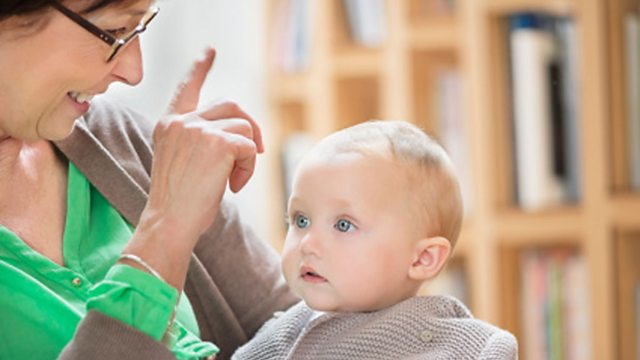The Developing Child
What goes on in the brain of a baby and how does it develop?
How early on can a small child distinguish between right and wrong? What does the latest research tell us about how a baby鈥檚 brain develops? And could watching TV be as good for the baby as reading books? Joining Bridget Kendall are child brain researcher Annette Karmiloff鈥揝mith, psychologist Paul Bloom, and children鈥檚 writer Lesley Beake.
Last on
Annette Karmiloff-Smith

Professorial Research Fellow at the Centre for Brain and Cognitive Development, at Birkbeck College, University of London, and author of a large body of academic articles and books for the general public, Annette Karmiloff-Smith investigates face processing, speech processing, language, social cognition, number, and attention in babies and children, using behavioural and electro-physiological measures. Before her current post at Birkbeck, she was Head of the Neurocognitive Development Unit at the Institute of Child Health in London, and previously studied and worked with Jean Piaget in Geneva.
Paul Bloom

The research of Paul Bloom, Brooks and Suzanne Ragen聽Professor of Psychology at Yale University, explores how children and adults understand the physical and social world, with special focus on morality, religion, fiction, and art. He has won numerous awards for his research and teaching, is past-president of the Society for Philosophy and Psychology, co-editor of Behavioral and Brain Sciences, one of the major journals in the field, as well as the author or editor of six books, including
Lesley Beake

Based in South Africa for most of her life, Lesley Beake has been involved with writing and editing children鈥檚 stories for some thirty years and has published over 80 books. All her stories are set in Africa and are rich in African imagery and landscape. One of her first books, The Strollers, won the 1987 Young Africa Award for children鈥檚 literature, followed by many other prizes and translations into a number of European and African languages as well as Japanese. Much of her work involves writing for readers who are reading in English as their second, third, or even fourth language.
60 Second Idea

Annette Karmiloff鈥揝mith聽suggests that eating a hamburger slowly and chewing each mouthful fully might be better for children than guzzling down an apple! She has observed that people who are overweight tend to eat very quickly so she would like to take pregnant mums and nursery school aged infants and train them to put down their cutlery after each mouthful and chew 20 times before swallowing. They will learn a lot more about tastes, eat in a more controlled way and find meals a pleasure.
Next week
What does scarcity do to our brains? 聽Whether it鈥檚 money, time or sleep we鈥檙e short of: does it cloud our thinking? Or make us more innovative?聽With psychologist Eldar Shafir, innovation researcher Simone Ahuja and chemist Andrea Sella.
Broadcasts
- Sat 11 Jan 2014 22:06GMT麻豆社 World Service Online
- Sun 12 Jan 2014 10:06GMT麻豆社 World Service Online
- Mon 13 Jan 2014 03:06GMT麻豆社 World Service Online
Do you use US dollars even though they are not your country鈥檚 official currency?
Podcast
-
![]()
The Forum
The programme that explains the present by exploring the past



